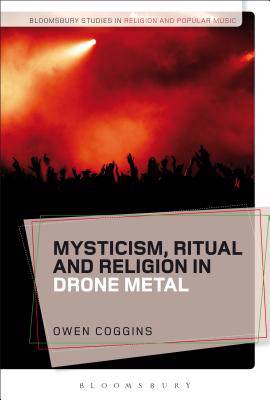
- Afhalen na 1 uur in een winkel met voorraad
- Gratis thuislevering in België vanaf € 30
- Ruim aanbod met 7 miljoen producten
- Afhalen na 1 uur in een winkel met voorraad
- Gratis thuislevering in België vanaf € 30
- Ruim aanbod met 7 miljoen producten
Omschrijving
This is the first extensive scholarly study of drone metal music and its religious associations, drawing on five years of ethnographic participant observation from more than 300 performances and 74 interviews, plus surveys, analyses of sound recordings, artwork, and extensive online discourse about music.
Owen Coggins shows that while many drone metal listeners identify as non-religious, their ways of engaging with and talking about drone metal are richly informed by mysticism, ritual and religion. He explores why language relating to mysticism and spiritual experience is so prevalent in drone metal culture and in discussion of musical experiences and practices of the genre.
The author develops the work of Michel de Certeau to provide an empirically grounded theory of mysticism in popular culture. He argues that the marginality of the genre culture, together with the extremely abstract sound produces a focus on the listeners' engagement with sound, and that this in turn creates a space for the open-ended exploration of religiosity in extreme states of bodily consciousness.
Specificaties
Betrokkenen
- Auteur(s):
- Uitgeverij:
Inhoud
- Aantal bladzijden:
- 224
- Taal:
- Engels
- Reeks:
Eigenschappen
- Productcode (EAN):
- 9781350123168
- Verschijningsdatum:
- 25/07/2019
- Uitvoering:
- Paperback
- Formaat:
- Trade paperback (VS)
- Afmetingen:
- 156 mm x 234 mm
- Gewicht:
- 317 g

Alleen bij Standaard Boekhandel
Beoordelingen
We publiceren alleen reviews die voldoen aan de voorwaarden voor reviews. Bekijk onze voorwaarden voor reviews.







